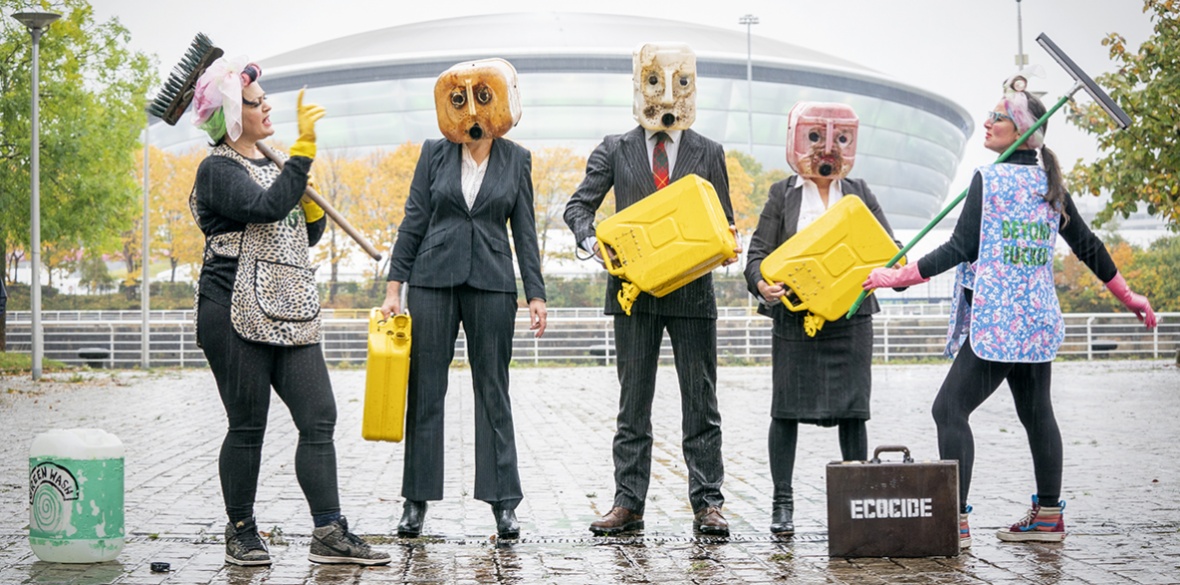THE eyes of the world are on Glasgow as the Cop26 global climate summit begins.
But even the most optimistic protesters are unlikely to imagine that the conference will commit to the kind of transformative action necessary to address the climate emergency.
That emergency is upon us. It is no longer merely the preserve of scientists’ observations and predictions.
No, from wildfires of ever-increasing frequency and ferocity from America to Russia to the catastrophic flooding we have seen from China to western Europe, the storm is upon us.
Action on the climate crisis falls into two, mutually reinforcing categories: urgent measures to reduce greenhouse gas emissions in order to avoid the most extreme warming, and urgent measures to protect people from the effects we are already seeing and which are likely to worsen.
Very few governments around the world have a good record on either. Britain’s certainly does not. Our Prime Minister may have enjoyed grandstanding at the United Nations about how humanity had to “grow up” and take “decisive action” to tackle global warming.
But the Budget just announced by the Conservatives showed that was all talk: there was nothing that would reduce Britain’s dependence on fossil fuels, nothing that would incentivise people or business to use less polluting forms of transporting themselves or goods.
In fact, through a tax cut for short-haul flights, the Budget actually incentivises people to use the most polluting form of transport.
It is clear, as the Scottish TUC’s general secretary Roz Foyer observes in today’s Morning Star, that “most of the world’s leaders see the climate crisis as largely unconnected to their wider economic and social policies.”
This is crippling. Many activists express bewilderment at the reluctance of governments to act on a crisis whose consequences threaten to make vast swathes of the planet uninhabitable, to disrupt the world’s food supply, to submerge whole cities.
We can only understand this when we understand that the political and economic system we live under is irrational. A system motivated by the maximum extraction of profit is not built to conserve people or planet: capitalism, as Marx once observed, tends to destroy its two sources of wealth, nature and human beings.
The direct influence of Big Oil and other major polluters is damaging enough. This is exercised through straightforward corruption but also an immense nexus of corporate law: little-known agreements like the Energy Charter Treaty, to which Britain and the whole European Union are signatories, which allow fossil fuel companies to take legal action against any government whose policies harm their profits.
But beyond that the social policy shifts required go against the grain. These states do not want to raise taxes on corporations in order to fund mass insulation, or a mammoth flood defence programme, or devote the greater resources needed to emergency services likely to be handling more and more disasters.
Universal, cheap public transport or energy networks that operate to meet need in a sustainable way rather than turn a profit for “investors” have no appeal for governments in service of a capitalist class.
The purpose of such observations is not to depict climate activism as a distraction from the struggle for socialism, still less to throw up our hands and dismiss all action short of an immediate transformation of society as futile.
It is to recognise that such policies can be won, but governments will need to be forced to act by overwhelming pressure to do so.
That is why the most important discussions this fortnight will not be those between global leaders at the official UN summit, but those taking place at the range of meetings and events being staged by the Cop26 Coalition, eco and left organisations around it, on how we build up the grassroots pressure for real change.










